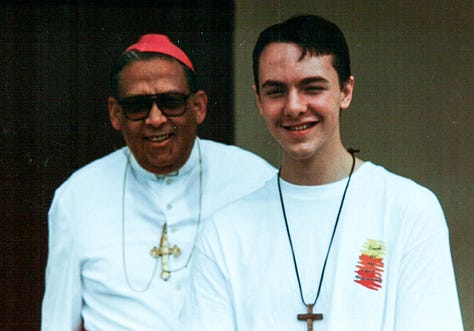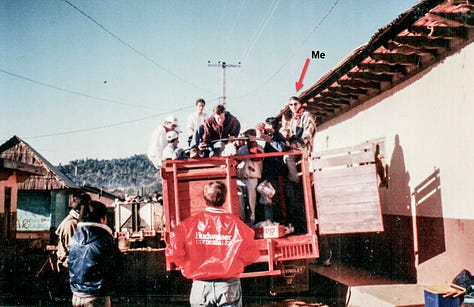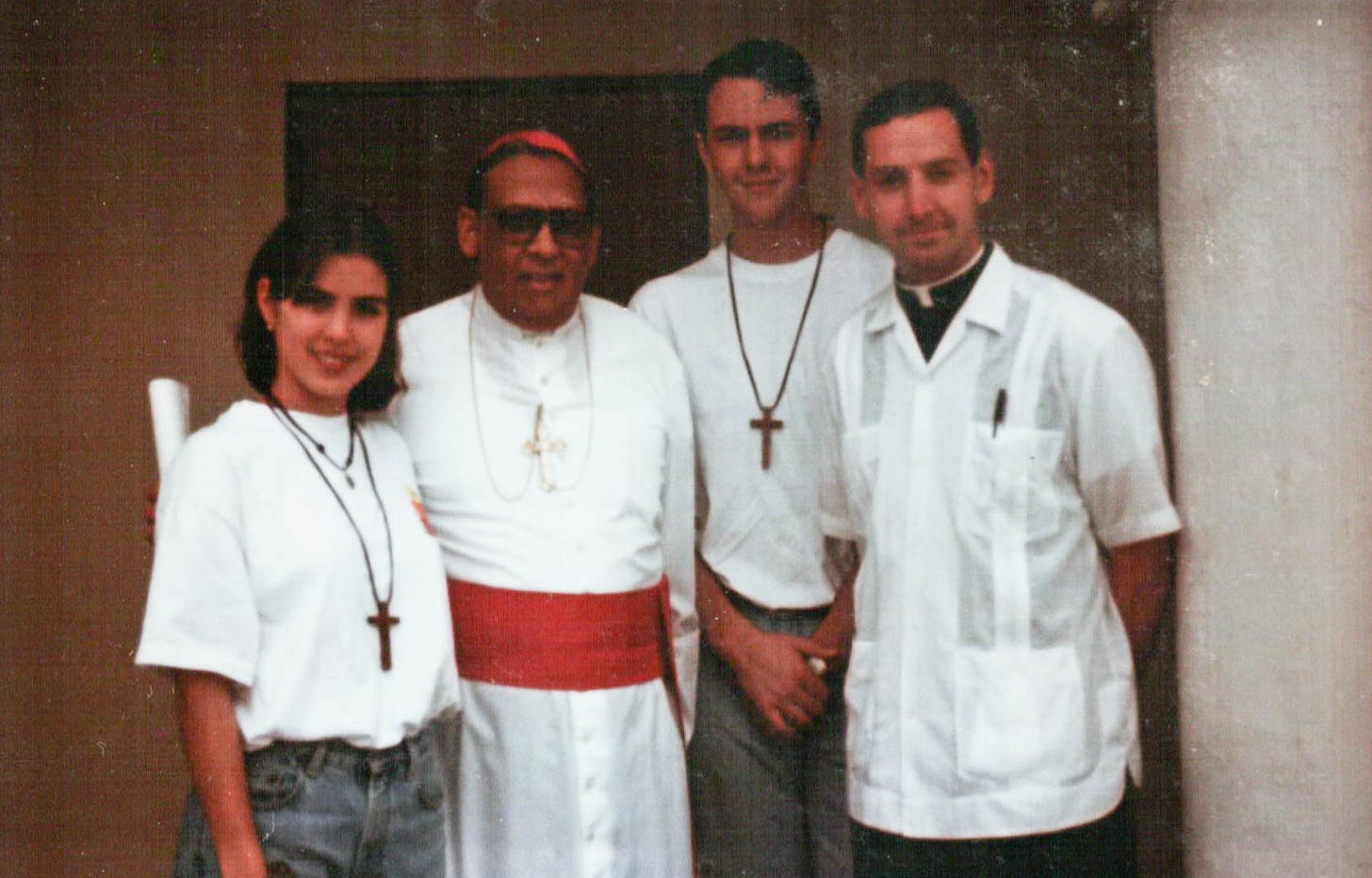The following is a paid subscribers-only post with free preview. If you’d like access to all subscribers-only features and posts, you can sign up for just $8/month or $80 per year, right here:
Writing is how I make my living, so if you like what you see here, please support my work by subscribing!
If you’ve already subscribed but would like to buy me a coffee to help keep me fueled up for writing, you can do that here:
The first time I did door-to-door evangelization, it was January of 1996. I was 18 years old, and I’d been staying with the Legionaries of Christ, boarding with the priests and brothers at The Highlands School in Irving, Texas, where I had lived since having been invited to be a counselor at at camp the previous summer.
At the time, Youth for the Third Millennium, one of the front organizations the Legionaries used to recruit for their lay apostolate, Regnum Christi, was just getting off the ground. I think they had done one or two previous missions, and they had figured out how to get young people to sign up: hold the mission in an exotic location.
The January 1996 mission was in the Bahamas.
I had never been to the Caribbean, and I was excited about the idea of going. An anonymous benefactor had paid my way, and I was eager to engage in this exciting opportunity to spread the faith.
The way these missions worked, young men and women would come from all over to a pre-coordinated location, typically based out of a parish that had either some affiliation with the Legion already, or wanted help revitalizing their parish and were interested in the free manpower. Missionaries would get a very rudimentary bit of training, a branded T-shirt, be handed a pocket-sized apologetics book with common questions and answers, and be sent out into the neighborhoods in the designated area to knock on doors and try to convince people to consider coming to the Catholic Church. Sometimes, we had community events to invite them to. Sometimes, the call to action was more general.
The whole thing was based loosely on the way the Mormon Missionary program operated, as was the “co-worker” program where young men and women could volunteer for a 1-2 years at a gender-appropriate house of apostolate, typically at the conclusion of high school. (I also participated in this program in Atlanta, though I only stayed for 6 months before leaving, after which they decided to attempt to destroy my reputation with everyone I knew in a manner common to cults who don’t take kindly to those who leave, leading to my estrangement from the Legion and Regnum Christi as a whole, and very nearly driving me out of the Church at that point.)
The missionary work itself was a ploy, but I didn’t know it then. The whole point of this “apostolate” was to get a bunch of zealous young people who were on fire for their faith into what amounted to an in-person sales funnel, where they could be manipulated into joining Regnum Christi, or even better, pressured into a religious vocation with the Legion or their consecrated equivalent for women.
But that first mission in the Bahamas was before they had all the bugs ironed out, so the experience was more pure. And although I did sign up to join Regnum Christi during that mission, the experience was probably the best of the six total missions I participated in, which took place in four different countries. By the last mission I did in Miami, Florida, I had gained enough experience that I was appointed to serve as Mission Director, which meant I did all the pre-mission site visits, coordination of lodging and food, and overall organization of the two week program.
The first couple times I went door to door was a little bit nerve wracking, but also exhilarating. I had done a small test run mission in the outskirts of Dallas, just for one Saturday morning, but this one was the real deal. And as it turned out, I was pretty good at it. I knew my faith fairly well, I was a natural at talking to just about anybody, and every door I knocked on helped me to learn a little more.









I, along with my Regnum Christi teammates, was once admonished in a closed door meeting by one of the Legionary priests that “If you’re not here to recruit people into the Regnum Christi, there’s something wrong with you!” And there was, in fact, something wrong with me.
No matter what they said, my heart was for the people. I was there for the souls I met at every door. I did not give a damn about recruitment. And inasmuch as this was my purpose, this was arguably the one truly good experience I had during my time in this insufferable cult.
The riches were in the ruse.
One of the first things you learn as a missionary — and it may sound cliché — is that you really do have to meet people where they are. The job demands enormous empathy. People leave or resist joining the Catholic Church for all kinds of reasons. Some are theological, some are personal. A number of folks I encountered got yelled at in a confessional or spiritually abused or neglected in some way and simply never came back.
Triumphalism has no place in missionary work. I don’t care if you’re dealing with people who are cohabitating, people who are into the occult, people who are divorced and remarried, people who have succumbed to substance abuse, or those who have just given up on the faith altogether. This idea that seems to have gained so much ground, especially in trad circles, that “admonishing the sinner” is a spiritual work of mercy that requires browbeating and general douchebaggery is the dumbest thing I have ever seen religious people do. You can’t just criticize or accuse or threaten those you perceive to be sinners and expect them to come home. They will slam the door in your face, and that will be the end of that.





